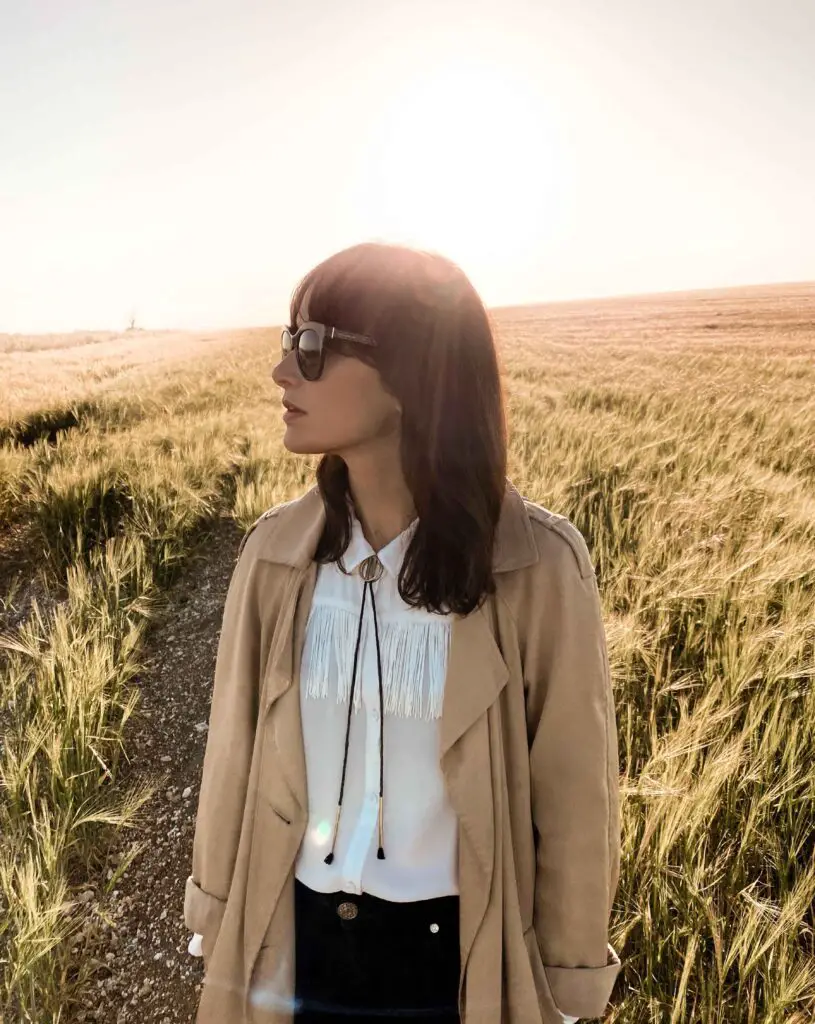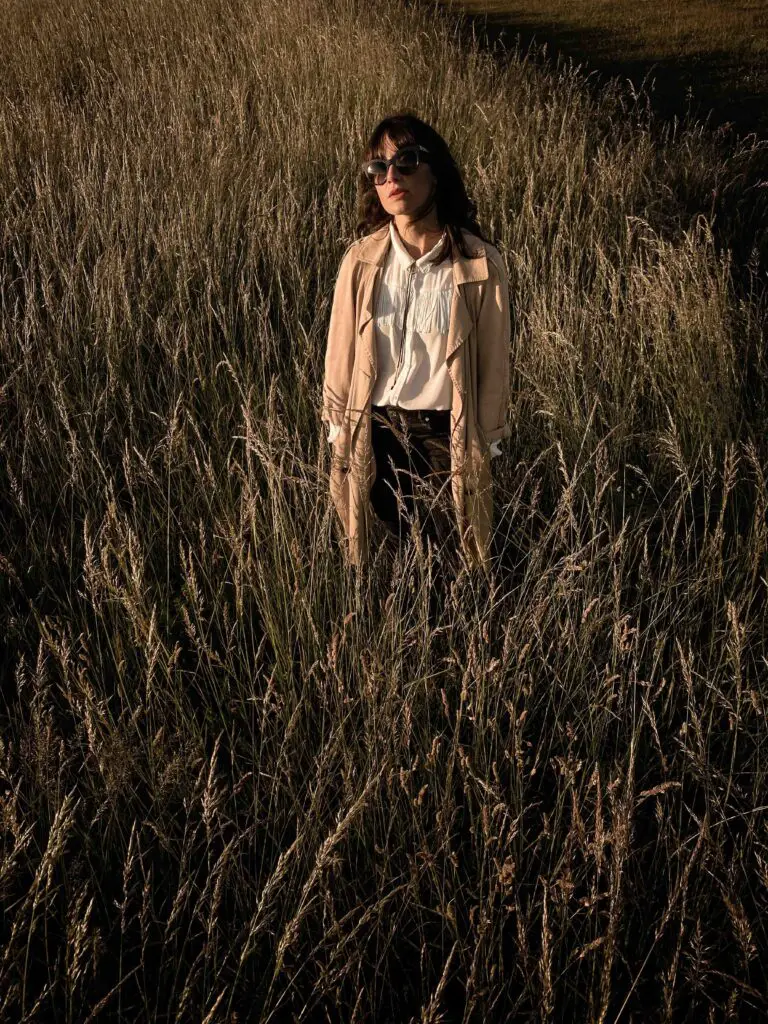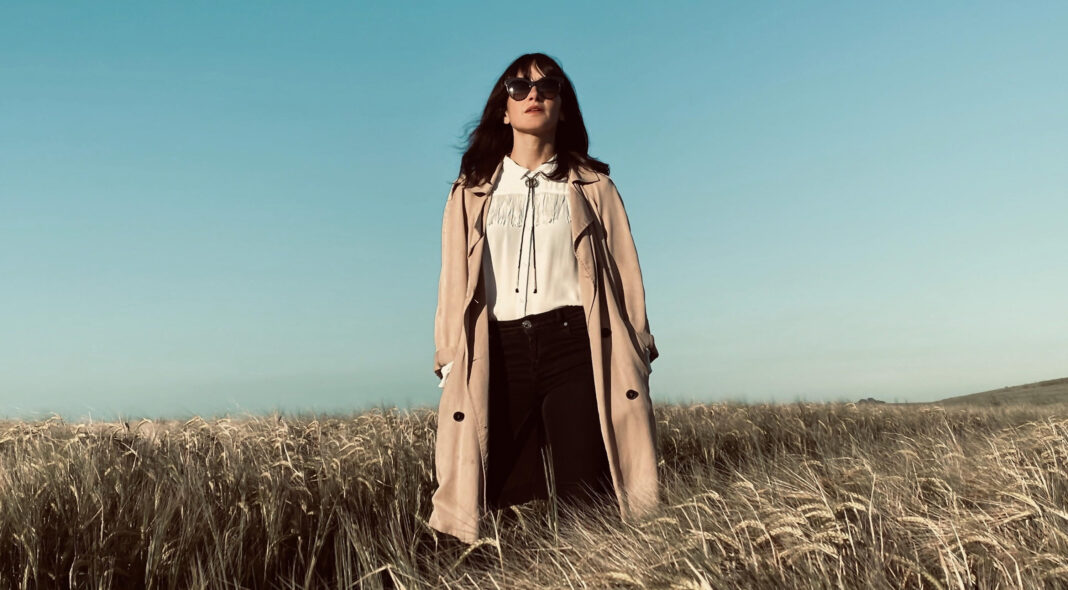When Juanita Stein, Australian singer-songwriter and former frontperson of the Howling Bells, lost her father Peter Stein at the beginning of 2019 she was propelled into one of her most meaningful creative spurts. In her base of Brighton in the UK, she found herself rallying to the studio every day for her longest period of writing on a record. Over the course of nine months she spilled her guts into the vocal booth and wrote and recorded ‘Snapshot’, her third solo album, alongside producer Ben Hillier. It was a movement through grief, but it was also a return to the art that’s defined her life since she first stepped into a studio at the age of five. Where Howling Bells were more of an indie rock project neatly sitting alongside the bands of the late 2000s to early 2010s, Stein’s own solo material is more traditional, leaning on classic Beatles and folk influences, and reminiscent of the likes of Cat Power and Nadine Shah. The record is filled with spectres past but also with a surge forward, playing out as one of Stein’s most beautifully arresting works yet. Although the world remains uncertain, she’s convinced that there is a light, and she’s pushing towards in spite of our darkest realities.
How are you?
Juanita Stein: “I’m OK, it seems to be a redundant question these days, doesn’t it?”
The title “Snapshot” denotes a record that stands alone from everything else you’ve done. Do you feel like it’s a step in a different direction?
“Yeah. I wasn’t writing a record, I wasn’t writing music. I was sailing quietly. Then this absolute tornado of grief and heartache descended upon me and the record was born. It unravelled very naturally and it felt serendipitous.”
When you say you weren’t planning on making a record what were you doing?
“Just living.”
Do you think you were wondering whether or not you’d continue being a recording artist?
“I never wondered whether I’d continue to write music because that’s not something you can choose. But whether or not I wanted to navigate my way through the music industry again… that was something that I’ve asked myself. It’s excruciating on so many different levels. Especially now, it’s very challenging.”
Did that hit a boiling point at some stage? Was the output not worth the behind-the-scenes stress?
“It’s not financially viable. In other industries when you invest as much as you do the return is relatively more than what you get as an artist. I have two small daughters and you gotta put food on the table.”
This record was spurned by the loss of your father. It’s your most personal and lyrically direct. Did life circumstances create this permission for you to just be as direct as possible?
“Yes. The first Howling Bells record was written almost entirely in my bedroom and that was following an excruciating breakup. It was a Romeo And Juliet love; we were young, living together, hitchhiking across Australia and then we broke up and it was the first time I’d ever separated from myself. Out of that came the record and I remember understanding that I’d entered a realm where I was just gonna vomit everything I’m feeling. Some people don’t need that permission and they’re the artists to me that are most arresting because they’re the most forthright and honest. I’m good at keeping those feelings away, locking them up. It takes something this stratospheric to open me back up.”
Did it feel different as you were recording this album? Were you hearing a new artist in the songs?
“Yeah. The only way I can put it is that I didn’t have a choice. I didn’t have a choice in writing and recording them and I wasn’t thinking that 12 months down the road I’d have to talk about this over and over again. It’s been difficult to open up. I find it hard to go there.”
How long has it been since your father passed?
“It was early 2019, so over a year. But the first song was written the day he was admitted to hospital. The songs have dredged up a lot every time I sing them. Re-living it through talking about it constantly is a double-edged sword.”
Your father was also a songwriter. I assume he’s the reason you made music?
“Yeah. He was a quiet musical legend in Australia from Perth. It was challenging at times for my mum and for us because he lived, breathed, and died music. It was very much the deeply embedded in all our souls. He taught me how to play guitar, he gave me my first Beatles songbook, he was at all our gigs. It didn’t feel like an unnatural thing to go and make a record when he died.”
What do you think was vital to you in commemorating his life on these songs?
“Maybe what I was thinking about was keeping him alive. Maybe if I was gonna make this record and people would hear the record and it would live for a few years in people’s lives that was keeping his spirit alive. One of the things I struggled with the most when he passed away was the permanence. Nothing is that permanent. I couldn’t fathom the finality of it. I think I thought that if I just kept writing and recording as long as I could it was going to keep that part of my life with me for as long as possible.”
Was the reactive need to make a record about carrying on his legacy?
“Yeah. He struggled to be heard as a musician. I thought – maybe I’m taking him with me. I remember driving into the studio the first day and I was talking to him by myself, ‘Right we’re doing this, you’re coming with me and we’re going to do this.’ The sentiment throughout the album was that he was with me, guiding me and navigating me through the process. I was able to let go a lot more because I felt his support. The songs are symbolic of what I was going through at the moment. A fucking washing machine of emotions every day.”
Were there days when you tried to work and just couldn’t?
“No and its’ really weird because I thought that there would be. In fact I felt compelled every day. I thought maybe I would find some answers while recording. Maybe I’ll figure out the meaning of this. So I was really driven to finish it. There was only one song where the words wouldn’t come out. Otherwise I felt very compelled to get through it.”
You made the record with your brother Joel [Howling Bells’ guitarist]. How did your communal experience of grief find its way into the studio? Did working together provide you the ability to communicate things with each other that you weren’t able to say out loud?
“Yeah that’s a nice thought. I think so. The very first day he came in, we don’t have to talk a lot. We were in the Bells for nearly 15 years and there’s not a lot of need for talking. The first day he got there, I chucked him into the room and I didn’t say anything to him. I just told him to play exactly how he was feeling. And that was the opening song on the record. The second half of it he’s just fucking bleeding guitar. There was a lot of quiet communication.”

It’s not a morose record. It’s pretty riotous in places. Was that you reaching beyond this moment of despair?
“Yes. I was left reeling. I wasn’t sitting in a corner crying every minute of every day. I was fuming. I was angry at what had happened. He was right as rain; drinking wine in the pub one night and just collapsed one day and was admitted to hospital. Turns out he was so far down the road with this particular illness and we had no idea. He might have been suffering quietly – a few back pains here or bruises there, quiet signs. But other than that, about a week before he fell ill I had this crazy dream where my grandmother – his mother who came from Czech during the war – appeared and didn’t say a thing but she placed her hand on my shoulder. No talking. Nothing. I remember calling my dad and he was like, ‘Huh? What does that mean?’ For me the only way I could try and understand anything was by making music.”
Were there records that helped you during that time that wound up influencing the album?
“I couldn’t listen to a lot of stuff that he listened to. There was this one Townes Van Zandt song that I sat and played again and again the day after the funeral and it was the only song that spoke to me. ‘Waiting Around To Die’. I didn’t choose it because of the title. It was speaking to me at the time, and I found a YouTube of him performing the song in his kitchen. It’s the most striking performance. It’s otherworldly. That and a lot of John Prine.”

Being part of such a musical family and upbringing, what was you and your dad’s relationship like in terms of his approach to you wanting to become a musician?
“He didn’t warn us, he was incredibly supportive. I was in a recording studio when I was five-years-old. I remember standing on telephone books and singing the song. I remember being in pubs and watching him play gigs. He didn’t really make money from it but maybe he sensed no point in pushing us to do something else. He could see that I wasn’t gonna become a banker. It was obvious very early on that I was headed down the musical route.”
Do you miss band life?
“No I don’t. I don’t miss the yesterday band days. I got to tour for a little bit on the first solo record and I enjoyed that a lot more. I enjoyed the pace, the space, the freedom, the guys I was playing with. Things in bands get incredibly sticky and challenging, it’s too hard to last. The only bands that last require great financial strategy to keep you going otherwise it’s not enough.”
Have you found yourself able to process everything else going on in the world at the moment aside from your father’s death?
“Yeah I think so. I think if there’s been any upside it’s been fundamentally that 2020 pales in comparison with losing someone, for me anyway. I was so close to my dad so unless the world blew up everything else felt like something we would get through. We will! We will get through it.”
Like what we do? Support The Forty-Five’s original editorial with a monthly Patreon subscription. It gets you early access to our Cover Story and lots of other goodies – and crucially, helps fund our writers and photographers.
Become a Patron!

